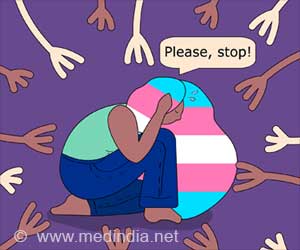Antidepressants are commonly used drugs for treating people suffering from depression. A recent study, published in, The Lancet have revealed cognitive behavior therapy (CBT) along with usual care can decrease the depression symptoms and can alleviate the quality of life.
The National Institute for Health Research Health Technology Assessment (NIHR HTA) Programme-funded CoBalT study intended to assess the best possible ‘next step’ treatment for depression patients who did not responded positively to medication alone.The research team consisted of scientists from Universities of Bristol, Glasgow and Exeter. The researchers conducted a randomized controlled trial and enrolled 469 depression patients in the age group of 18 to 75 years. They divided volunteers in two groups: 234 patients were given cognitive behavior therapy (CBT) along with usual care from GP. About 235 volunteers were kept on their usual care from GP.
The scientists followed up about 422 volunteers (approximately 90 percent) for six months and about 396 volunteers (approximately 84 percent) for 12 months to analyze and compare their progress.
After six months, around 46 percent of patients receiving cognitive behavior therapy along with usual care had showed improvements. They reported 50 percent reduction in depression symptoms as against the 22 percent reduction in those who went ahead with usual care alone.
The study findings revealed usual care in addition to CBT promises effective antidepressant treatment with reduced depressive symptoms. Significant improvisation in the quality of life was noted in patients not responding to first-line treatment for depression.
Dr. Nicola Wiles, the lead author and Senior Lecturer in the University of Bristol’s School of Social and Community Medicine mentioned, "Antidepressants are often the first-line treatment for depression -- a major public health problem with the World Health Organization estimating that over 300 million people are affected globally. However, in many countries, access to psychological treatments such as CBT is limited to people who can afford to pay, or those with health insurance. These findings emphasize the importance of increasing the availability of psychological therapy. While there have been initiatives to increase access to such treatments in both the UK and Australia, worldwide initiatives are rare, and even in the UK many people who have not responded to antidepressants do not get psychological treatment. Our study suggests that by investing in psychological services it is possible to reduce the significant burden to patients and healthcare systems that is associated with non-response to antidepressant medication.”
Professor Willem Kuyken of the University of Exeter said, "This trial provides further evidence that psychological treatments like cognitive therapy can provide substantive and lasting help to people who suffer depression. The Mood Disorders Centre, one of the participating sites, aims to make evidence-based psychological approaches as accessible as possible to people suffering depression. This trial demonstrates that people with complex and longstanding needs who have not responded to antidepressants can derive substantive and lasting benefit from CBT delivered by well trained therapists. Showing that 40 per cent of people who had been in cognitive therapy were largely free of symptoms at 12 months is really important because it bodes well for their longer-term recovery."
According to Chris Williams, Professor of Psychosocial Psychiatry at the University of Glasgow, the research is very important because it has a great role in CBT intervention and confirms that both the physical and psychological complement each other.
The researchers were of the opinion that there has been remarkable improvement in getting rid of the stigma related with depression and the available services for curing depression.
The scientists said, “We are delighted to see this research as it now provides the evidence that a range of treatments such as cognitive behavioral therapy and medication is vital to continuing this success."
Source-Medindia














